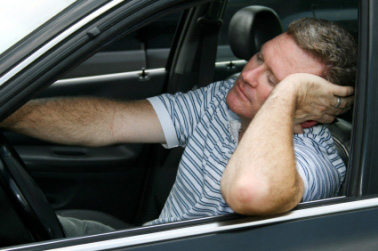CDC study: 4 percent of Americans are drowsy drivers
John Egan
Wake up, America. A lot of you are treating your cars like your beds.
According to a new study from the federal Centers for Disease Control and Prevention (CDC), 4 percent of American drivers reported falling asleep at the wheel at least once during the previous 30 days. That figure is in line with previous studies on drowsy driving. The CDC analyzed 2009-10 data from more than 147,000 motorists in 19 states and the District of Columbia.
 Reports of falling asleep while driving were common among adults who reported usually sleeping less than six hours a day; snoring; or unintentionally nodding off during the day. Men were more likely to report drowsy driving than women, the CDC says.
Reports of falling asleep while driving were common among adults who reported usually sleeping less than six hours a day; snoring; or unintentionally nodding off during the day. Men were more likely to report drowsy driving than women, the CDC says.
“Although it is clear that falling asleep while driving is dangerous, drowsiness impairs driving skills even if drivers manage to stay awake,” the CDC says. “Drowsiness slows reaction time, makes drivers less attentive, and impairs decision-making skills, all of which can contribute to motor vehicle crashes.”
The CDC says:
- Sleep-related crashes are more likely to happen at night or during the midafternoon.
- Drowsy-driving crashes often involve one car going off the road, with no evidence of braking or other attempts to prevent the crash.
- Sleep-related crashes make up a lopsided portion of rear-end and head-on collisions.
- Drowsy-driving crashes are more likely to cause injuries and deaths than crashes not involving drowsy driving.
“The best way to prevent drowsy driving is to recognize and address the conditions that lead to sleepiness,” the CDC says. “Those at increased risk for drowsy driving include commercial drivers, persons who work at night or long shifts, drivers with untreated sleep disorders, drivers who use sedating medications, and anyone who does not get adequate sleep.”
The CDC offers these four tips for fighting the urge to yawn behind the wheel:
- Get the recommended amount of sleep each day (seven to nine hours).
- Seek treatment for sleep disorders.
- Don’t drink alcohol before getting behind the wheel.
- If you feel drowsy while driving, pull off to the side of the road to get some shut-eye or have a passenger take over the driving duties.
